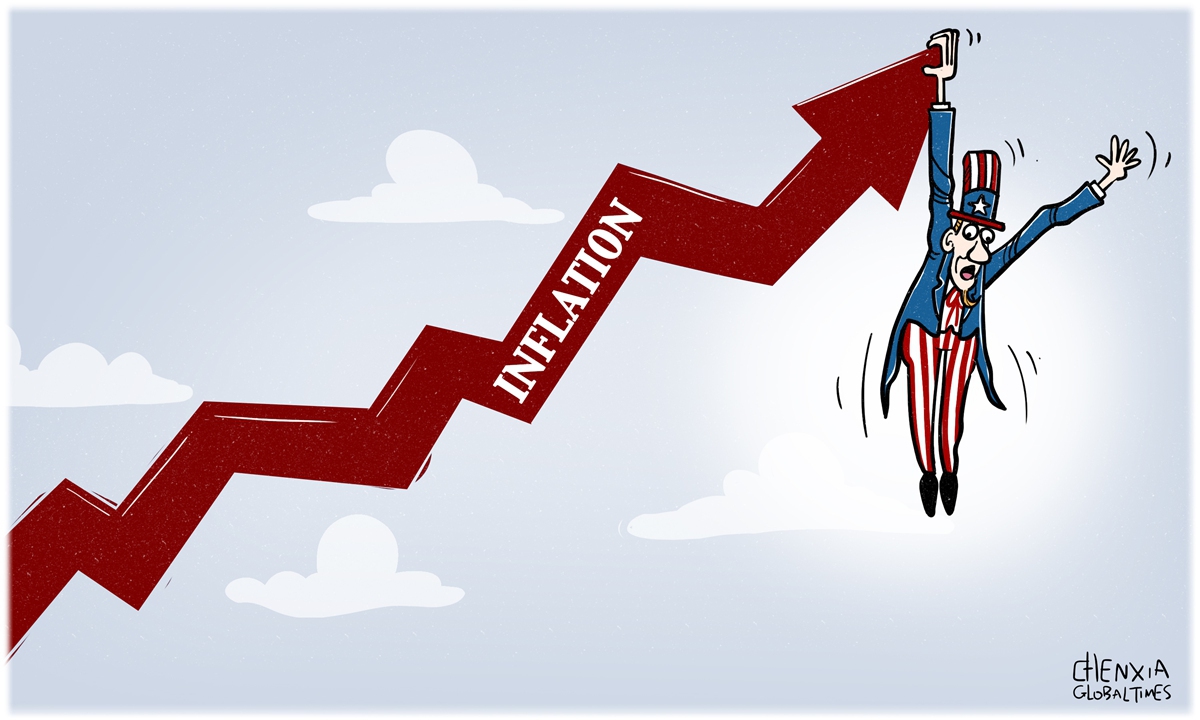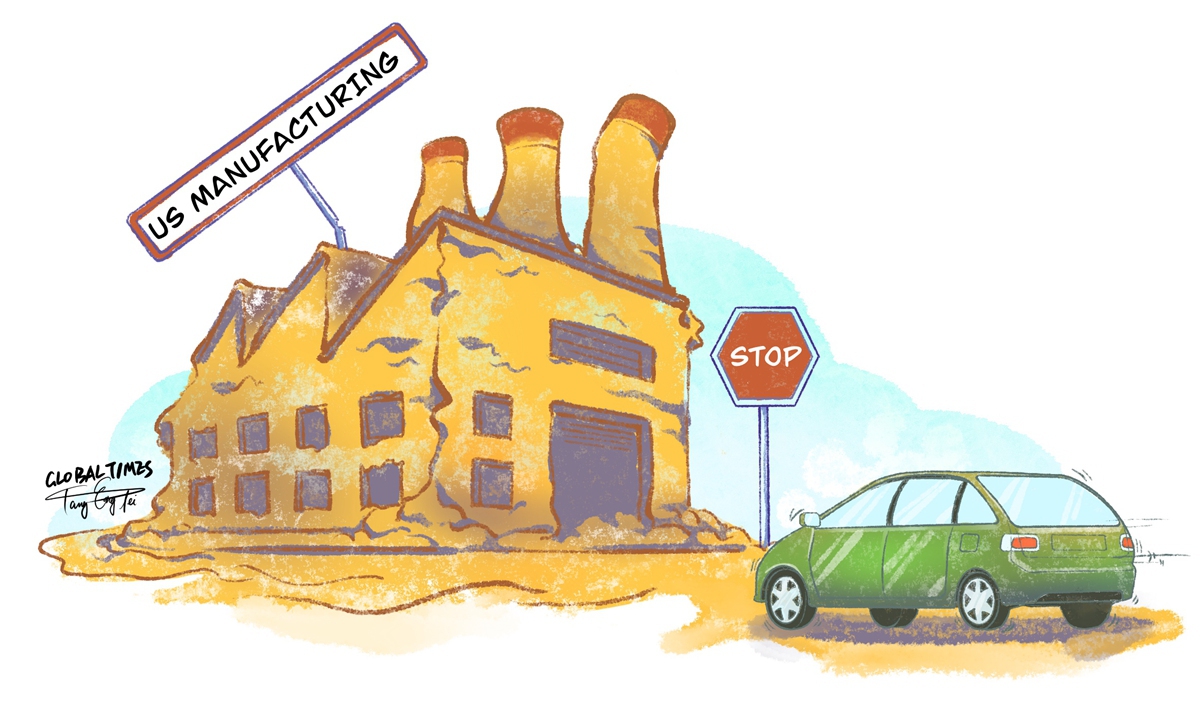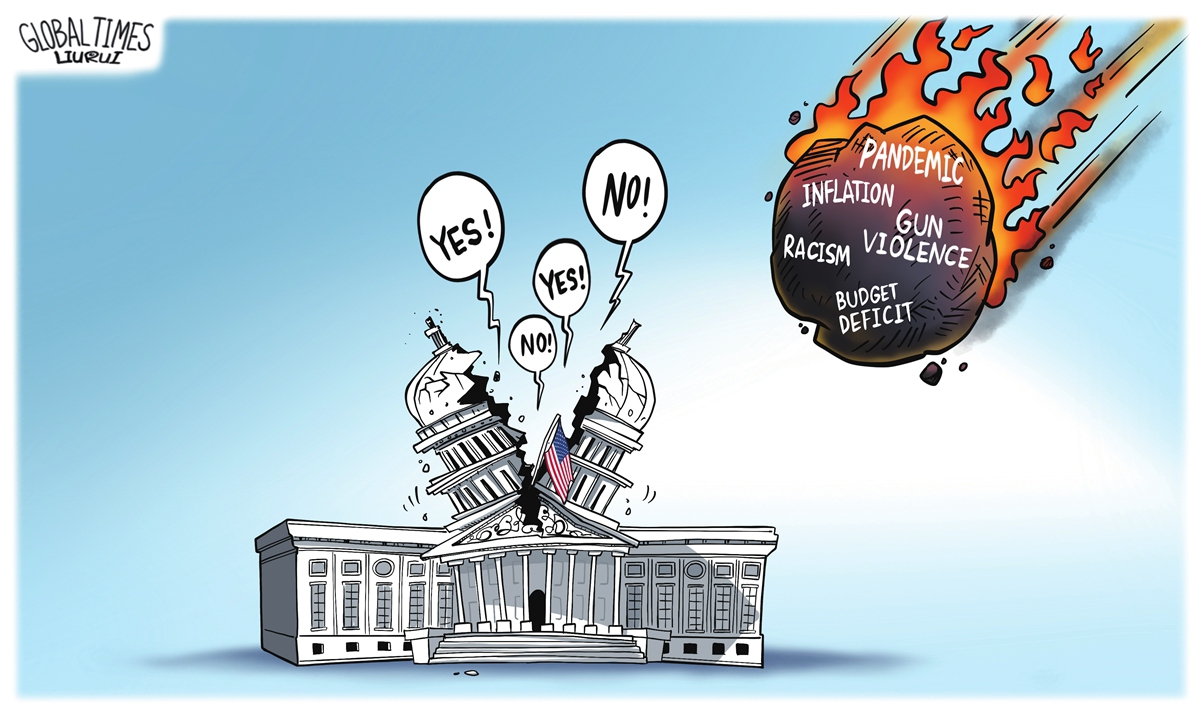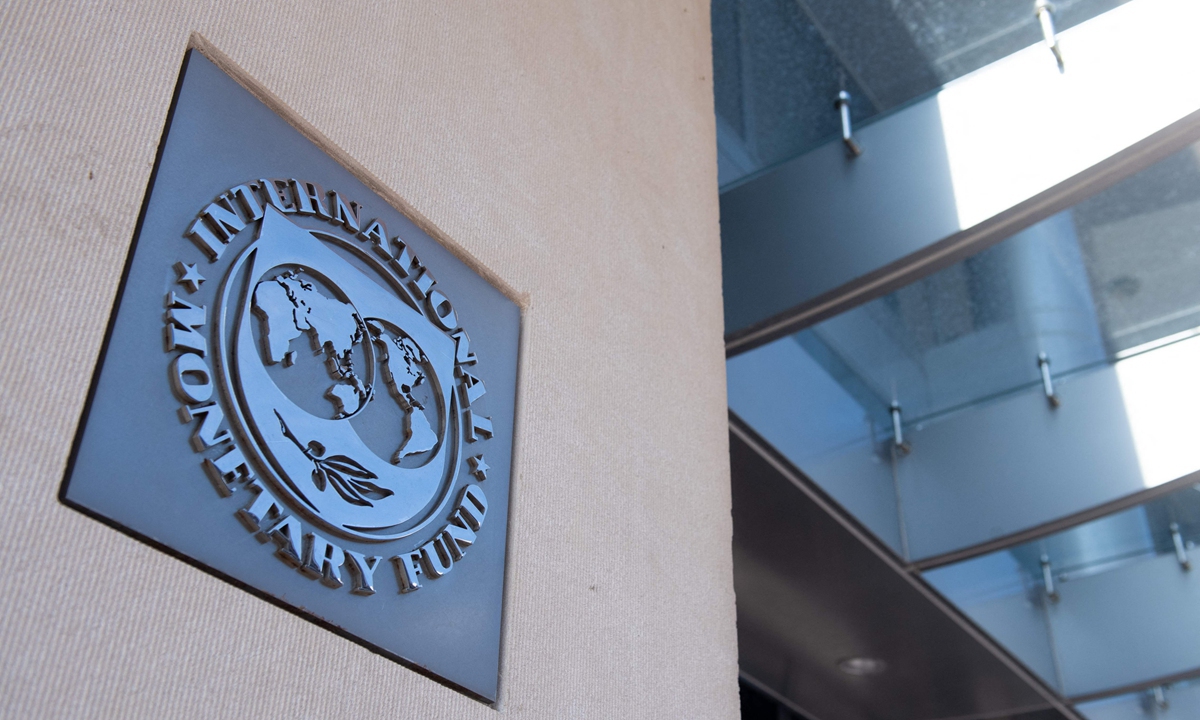
Illustration: Chen Xia/Global Times
The outbreak of the Israeli-Palestinian conflict has driven up oil prices again, while a potential oil crisis could risk putting the Fed's inflation fight in jeopardy, adding uncertainties to the global economic recovery.The US and Venezuela have progressed in talks that could provide sanctions relief to Caracas by allowing at least one additional foreign oil firm to take Venezuelan crude oil for debt repayment, Reuters reported on Monday, citing five anonymous sources.
The timing of the news seems delicate, as it comes at a time when oil prices keep rising on market fears of the Middle East conflict exacerbating supply tightness. On Monday, global benchmark Brent Crude rose 4.2 percent to $88.15 a barrel, while US benchmark West Texas Intermediate (WTI) rose 4.3 percent to $86.38 per barrel.
Both Brent Crude and WTI remained around their Monday closing levels during Tuesday's trading. The regained upward momentum contrasted with a drop of more than 8 percent in global oil prices over the previous week.
Apparently, the US releasing information through media outlets over potential sanctions relief on oil-exporting country Venezuela serves as a reminder to the market that even if the Israeli-Palestinian conflict brings uncertainty to crude oil supply in the Middle East, the US may be able to affect oil prices in other ways.
If the US does ease sanctions on Venezuelan crude oil, then an immediate effect would be an increase in supply to the world oil market and a fall in oil prices.
However, even though it is not clear how oil prices will unfold, US anxiety about high oil prices triggering high inflation is almost certain. At a time when the Fed's monetary tightening policy has approached its limit, if the Israeli-Palestinian conflict leads to a sustained rebound in global crude prices, then it will certainly disrupt the interest rate hiking cycle of the Fed.
If the Fed continues to hike interest rates to curb inflation, the US economy will likely slip into a recession. A worse scenario for the Fed could be that the economy falls into a recession with the inflation rate still high.
While some may argue that since neither Palestine nor Israel is a major oil-producing country, the impact on the oil market is limited, and the conflict may not last long. Yet, market fears about the Middle East situation are not unfounded. There are no reliable indications of whether the conflict will end soon or lead to wider regional instability. If it escalates to involve more Middle East nations, it could threaten crude supply by the surrounding major oil-producing countries. The Middle East is home to some of the world's biggest oil producers, including Iran and Saudi Arabia, as well as key transit routes such as the Strait of Hormuz, which is known as the world's most important "oil chokepoint."
The US will try its best to avoid the worst-case scenario. Diplomatic efforts may convince Saudi Arabia, Iran and Venezuela to increase their oil production to relieve its inflation pressure. But it needs to be reminded that given the past oil crises in the Middle East that caused great volatility in the global crude market, the psychological impact of the Israeli-Palestinian conflict on the crude market shouldn't be underestimated. As long as the conflict remains unresolved, the impact will remain.
Also, since the Biden administration has already released several batches of oil from the Strategic Petroleum Reserve for the purpose of reining in high inflation, the remaining stocks may not be as sufficient as they were during previous oil crises. It is disturbing to think how few tools the US has left to affect inflation.
Can the Fed's monetary policy withstand the test of this round of oil market volatility? If the Fed changes the pace of rate hikes because of the Middle East situation, then the risk of a US recession will increase significantly.
At that point, even the world economic recovery will face greater difficulties. That will also create more challenges for the Chinese economy, especially in terms of the spillover effect of US rate hikes and China's cooperation with the Middle East. In this sense, essential preparations are needed for the potential shocks.



